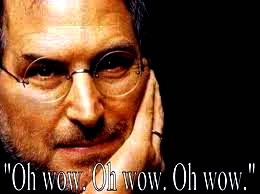by Joanie Butman
The way I view the seasons is definitely influenced by my children’s lives. My son is currently in a testing season. He is a junior in high school, which is ALL about testing and performance – SAT, ACT, Subject Tests, AP Tests. Never mind the regular tests in his classes. The SAT prep classes began in November for the January test. Started again in March for the May test. They will continue through May for the subject tests in June. Just enrolling him in prep classes and registering for the numerous tests was stressful enough, and I don’t even have to take the exam!
Come to think of it, much of his high school experience has been leading towards these evaluations. Sadly, the sum total of his academic career will be reflected in these numbers – better not have an off day or have your mom send you to the wrong place (another story for another blog). In fact, for most kids these days, everything they do is graded in some way – whether it is sports, academics or community service. Most resumes of 17-yr-olds are more impressive than many adults I know. Much of what I did at that age would NEVER be divulged to a potential college or employer – in a confessional, maybe.
Other than it being testing time for my son, it is also a period of testing for many people I know – but not in the same way. These are tests where the results will be much more life defining than any academic assessment. I’ve always believed that the most important lessons in life aren’t learned in a classroom, and the wisdom they impart will be the most valuable and enduring.
‘Testing’ is a frequently used word by Christians to define a period of suffering. Personally, and maybe this reflects my history of less than stellar academic performance, I have a problem with describing suffering as ‘testing.’ That description would imply the suffering was being administered by ‘someone.’
The way I see it, testing involves your performance, while suffering is more about God’s performance. I don’t believe God causes suffering; that’s simply the result of living in a broken world. He wastes nothing though, so He employs it as a teaching moment. Most parents are familiar with them and know they can be painful and the consequences costly. Nevertheless, God adds meaning to our suffering by using it as an opportunity to strengthen our faith by proving His own trustworthiness. The purpose isn’t for us to prove our devotion to Him, but for Him to prove His devotion to us.
As a Christian, I choose to believe this life prepares us for eternity. So, in essence, God is just teaching to the test. Life is one long prep class for our next assignment with God as our divine tutor. It is a cumulative program. Each ‘test’ builds confidence equipping you for the next one. Our only graduation is death where we are promised no more pain or suffering.
I always laugh when my kids complain about their teachers, “He didn’t tell me this was going to be on the test. That’s not fair!” Life lesson #1: LIFE’S NOT FAIR! You’d think they’d know that by now as I have frequently reminded them that if it were, they’d have a lot less. God never tells us what’s going to be on the test either or even when it's going to be given. A majority of our suffering comes in the form of a pop quiz for which most of us feel totally unprepared. We may be, but He certainly is not. Hence, the lesson: Don’t rely on your own strength.
Bible Study has been the best prep course I’ve ever taken to prepare me for life and death. I was studying for years before my first ‘test’ and in hindsight, can clearly see the role suffering plays in the life of a Christian. The adage “God is more concerned with your character than your comfort” is something we all need to remember sometimes. All that book knowledge I acquired over many years studying the Bible would never have reached my heart unless I chose to cling to it during times of distress. It was only through my ‘tests’ that the Bible was transformed from a history lesson to a love letter from God. You can read or memorize as much scripture as you want, but if you never choose to apply it to your life, it will just be useless knowledge. This may not be the case for everyone, but for me its meaning and veracity came alive through suffering.
In conclusion, without ever having to exercise the lessons I learned during all those years of Bible study, my Bible knowledge would remain theology, not necessarily wisdom. It might have helped me if there was a standardized test on such things or on the occasional Jeopardy category, but it wasn’t going to serve me well in life unless I chose to apply it. It was only through the training ground of suffering that I even came close to the equivalent of a perfect SAT score – and it had nothing to do with my performance at all.






































